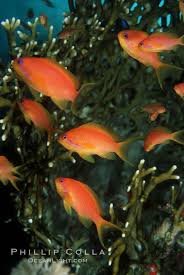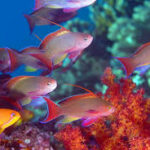
The Dragon King Festival, known as Long Wang Jie (龙王节) in Chinese, is one of the most important cultural and religious events in coastal and fishing communities across China. Celebrating the mighty Dragon King, the deity who rules over the seas, rivers, and storms, this festival is a vital part of the local spiritual and cultural landscape, particularly in fishing villages that rely on the waters for their livelihoods.
The Dragon King, or Long Wang (龙王), is a revered figure in Chinese folklore, believed to have the power to control water and protect sailors, fishermen, and those who live by the sea. The festival dedicated to him typically involves elaborate rituals, vibrant celebrations, and offerings made to ensure the protection, prosperity, and safety of coastal communities. The Dragon King Festival, held annually, reflects the deep connection between these communities and the natural elements that govern their lives, particularly the sea.
In this article, we will explore the origins, significance, and customs surrounding the Dragon King Festival as it is celebrated in the fishing villages of China. We will also delve into the ways in which the festival continues to be an essential part of the cultural fabric of these coastal communities and how it remains relevant today.
The Origins of the Dragon King and the Festival
The mythological figure of the Dragon King is deeply embedded in Chinese culture and religion. As the ruler of the seas, rivers, and lakes, the Dragon King is regarded as a powerful deity capable of controlling the elements, particularly water. The Dragon King is also known to have the ability to influence weather patterns, and his favor is sought by fishermen and sailors who depend on favorable conditions for their livelihoods.
The roots of the Dragon King’s worship can be traced back to ancient Chinese beliefs in the forces of nature and the deification of natural elements. Early Chinese society, particularly in coastal areas, saw water as both a source of life and a potential threat. Storms, floods, and other natural disasters could devastate communities, making the Dragon King a crucial figure in ensuring the safety and prosperity of coastal dwellers.
The Dragon King Festival, celebrated on the 23rd day of the 6th lunar month, is an ancient tradition that has evolved over centuries. The festival is designed to honor the Dragon King and to seek his blessings for favorable weather, bountiful harvests, and safe voyages. The date of the festival is believed to coincide with the time when the Dragon King is most active in overseeing the waters, making it a critical moment for communities to show their respect and gratitude.
Significance of the Dragon King to Fishing Villages
For fishing villages, the Dragon King is more than just a deity; he is a protector and a source of livelihood. The sea is a central part of the daily life in these villages, with many families depending on fishing as their primary source of income. As such, the Dragon King is regarded as a guardian who controls the waters and ensures the safety of sailors and fishermen who venture out into the sea.
The worship of the Dragon King is rooted in the belief that by offering sacrifices and performing rituals, the people can receive protection from natural disasters such as typhoons, floods, and storms. In these coastal communities, the sea can be both a provider and a destroyer, so maintaining a good relationship with the Dragon King is seen as essential for survival and prosperity.
Additionally, the Dragon King is associated with the fertility of the waters, believed to bring abundant catches of fish and other sea creatures. This makes the Dragon King Festival a time for local fishermen to pray for a prosperous fishing season. The festival is also an occasion for families and communities to come together to celebrate their shared dependence on the sea.
Rituals and Customs of the Dragon King Festival
The Dragon King Festival is celebrated with a variety of customs and rituals that are intended to honor the Dragon King and seek his blessings. These customs vary somewhat by region, but the core elements remain consistent, focusing on offerings, prayers, and public celebrations.
The Dragon King Temple: The Heart of the Festival
At the heart of the festival is the Dragon King Temple, which is typically located near the shore or on the banks of a river or lake. The temple serves as the central place of worship where local fishermen, sailors, and other residents gather to make offerings and perform rituals. The temple is often adorned with vibrant decorations, including red lanterns, dragon-themed banners, and floral arrangements. Statues of the Dragon King are displayed prominently, often depicted with the traditional features of a dragon – serpentine body, scales, and a regal, powerful demeanor.
On the day of the festival, worshippers visit the temple to present offerings to the Dragon King, which may include incense, fruits, fish, and other symbolic gifts. The offerings are meant to show respect for the Dragon King and to ask for his protection and blessings. In some areas, the offerings may be accompanied by ceremonial dances and songs, invoking the power of the Dragon King to ensure good weather and safe voyages.
The Dragon Boat Procession
One of the most exciting and visually stunning aspects of the Dragon King Festival is the dragon boat procession, which is a traditional custom in many fishing villages. In this event, elaborately decorated dragon boats are rowed by teams of local fishermen and community members, who often dress in colorful traditional costumes. The boats are typically adorned with large dragon heads at the bow and are rowed in a synchronized manner to symbolize the power and grace of the Dragon King.
The dragon boat procession serves as both a religious offering and a celebration of the community’s connection to the water. The participants often chant prayers or sing songs to honor the Dragon King, and the boat race is seen as a form of symbolic tribute to the deity’s control over the waters. This event not only reinforces the communal ties within the fishing village but also serves as a reminder of the importance of the sea and the Dragon King’s protection.
The Water Rituals and Prayers
Another key aspect of the festival is the water rituals performed to honor the Dragon King. These rituals are centered around the belief that the Dragon King has the power to control the seas and influence weather patterns, making water a crucial element in the celebrations. In many fishing villages, water from rivers, lakes, or the sea is collected and used in a variety of ways during the festival.
One common practice is the purification ritual, where villagers collect water and use it to cleanse their homes and boats, symbolizing the removal of bad luck and negative energies. The belief is that the Dragon King’s blessings can be transferred through the water, bringing prosperity and good fortune for the coming year. In some regions, participants may also sprinkle water on each other during processions, further invoking the power of the Dragon King and seeking his favor.
Additionally, prayers for safe voyages, bountiful fishing seasons, and protection from natural disasters are a central part of the festival. Local fishermen and sailors are especially diligent in offering prayers, asking the Dragon King for a favorable sea. These prayers often include requests for calm waters, safe navigation, and abundant catches.
Feasts and Community Celebrations
The Dragon King Festival is not just a religious event but also a time for community bonding and celebration. After the rituals and processions, families and community members come together to share a feast, often featuring fresh seafood, which is seen as a symbolic gift from the Dragon King. These gatherings are filled with music, dancing, and other festivities, providing an opportunity for the village to come together in joy and solidarity.
For many fishing villages, the festival represents not only a spiritual celebration but also a time for renewal. The feast and celebrations mark the end of the festival and the beginning of the next fishing season, reinforcing the sense of unity and gratitude within the community.
The Decline and Revival of the Dragon King Festival
As China modernizes, the traditional celebrations of the Dragon King Festival in some coastal areas have faced challenges. The industrialization of fishing, the expansion of urban areas, and changes in cultural practices have led to a decline in the prominence of some traditional festivals. However, in recent years, there has been a revival of interest in preserving these customs, particularly as communities seek to maintain their cultural identity and connection to their maritime heritage.
In many regions, efforts are being made to ensure the continuation of the Dragon King Festival, with local governments and cultural organizations supporting the celebration and preservation of these traditions. The festival has become not only a time for spiritual renewal but also an opportunity for tourism, as visitors come to experience the rich cultural heritage of China’s coastal communities.
Conclusion
The Dragon King Festival is a vital cultural and religious event in Chinese fishing villages, symbolizing the deep connection between coastal communities and the forces of nature that govern their lives. Through rituals, offerings, prayers, and celebrations, the festival honors the Dragon King as the protector of the seas and the guardian of the people who rely on the water for their livelihoods.
This festival reflects the enduring reverence for the Dragon King and the cultural significance of water in Chinese mythology. As the festival continues to evolve and adapt to the modern world, it remains a powerful symbol of community, protection, and the ongoing relationship between humans and the natural world. The Dragon King Festival is a celebration of life, prosperity, and the ever-present power of the sea, reminding us of the delicate balance between nature and humanity.

